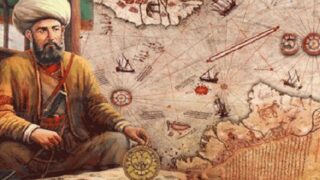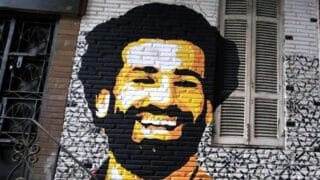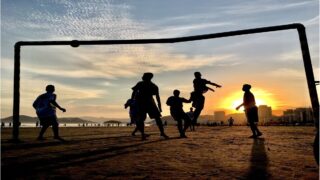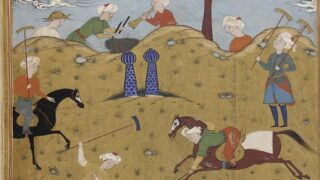Islam views heath as a human necessity and basic need and not luxury or embellishment. Human life has its sanctity which should not be trivialized or ignored as evident in definitive texts of the Qur’an: “Because of that, We decreed upon the Children of Israel that whoever kills a soul unless for a soul or for corruption [done] in the land – it is as if he had slain mankind entirely. And whoever saves one – it is as if he had saved mankind entirely…” (Al-Maidah Q5:32). And the saying of His noble Prophet (peace and blessings be upon him): “Whosoever begins the day feeling family security and good health, and possessing provision for his day is as though he possessed the whole world.” (Sahih Tirmidhi). These texts and their like are proofs encouraging the Muslims to care and be concerned about health as they called for its maintenance.
Islam’s Preventive Constitution
Islam stands out among other Laws for the inclusivity of its teachings; covering religious creeds, laws and rules, as well as mundane issues such as ethics of organizing work, areas of economics, commerce, health, etc. Dr. Shawki al-Fanjari in his book At-Tibb al-WIqa’I fil Islam (i.e., Preventive Medicine in Islam) assumes that Islam is the only religion that came with what he tagged as the Constitution or Protocol of Preventive Medicine which comprises a number of elements, the most important of which are:
- Environmental health and its cleanliness: this includes; cleanliness of the body, food, drinks, streets, roads, and water sources.
- Prevention of the spread of communicable diseases: this includes isolation of the sick, quarantine, and prohibition of moving to areas that are afflicted by an epidemic.
- Prevention of animals, rodents, and flies that carry diseases. In order to ensure this, the Prophet (May the peace and blessing be upon him) commanded that the rats be exterminated, likewise, scorpions, vicious dogs, and harmful flies that transmit diseases
- Healthy food to the body: this is categorized into three (3), eating good food that contains all nutrients that the body needs, abstinence from food wastage and overloading the belly which results to overfeed, and abstinence from harmful food such as carrion, and swine.
- Concern for emotional and mental health: they are the teachings of Islam for the prevention of mental stress. Among this also is perseverance during the trial and total submission to the will of Allah.
- Concern for physical fitness through the encouragement of physical exercise and the call to beneficial sports as well as condemnation of laziness and idleness.
- Care for the elderly, children, women, and the pregnant: this is by relieving them of the tasks which they cannot shoulder.
Throughout the history, Muslims are successful in moving these theoretical teachings to visible actions as evident in the establishment of different types of hospitals by the state in order to cure the sick. In fact, it went further to digging canals, and purification of water sources as it appointed the Muhtasib to supervise marketplaces as well as to monitor medical procedures therein. The state also legislated laws that ensure protection of the environment, so also many other procedures that could reveal health policy which we plan to explain as follows:
Health Policy and the Role of State in its Implementation
During the early stage of Islam, the Muslims were preoccupied with the establishment of kingdom and construction of the state. After they had achieved some of those targets, they began to focus on science and civilization; the shift that was apparent since the reign of Umayyad, despite the closeness of that reign to the era of nomadism. At that time, Khalid bn Yazid bn Mu’awiya requested the translators to translate the books on wisdom, Medicine and Chemistry from Greek to Arabic language. After his reign, Marwan bn al-Hakam came and requested Hakim Sarjis to copy the famous books of the Greek. When Umar bn Abdul Azeez reigned, he discovered the books in the cabinets of Bani Umayya and he instructed that the books be distributed amongst the physicians so that they can make use of their contents.
The Caliphs who came later followed the same path by commencing the construction of hospitals, financing them, and purchasing drugs. One of the oldest of those hospitals is Jundishapur Hospital which was constructed at the time of Abi Ja’far al-Mansur. The hospital was headed by Jabril bn Bukhtishu who translated a number of medical books with the order of Caliph al-Mansur. After this hospital, a lot of other hospitals followed until they spread across Egypt, Syria, Iraq, and, Hijaz. He used to select for them the best physicians and appoint an overall head from among them who was regarded as (director of the Physicians).
Different types of hospitals, among which is a movable hospital. This is a hospital that moves and it was well equipped with drugs and medical equipment. It was of very great help in treating the sick. It moves from one city to another amongst the cities that have no stable and permanent hospital, or in those cities that suffer illnesses or communicable diseases. It sometimes accompanies the pilgrims on their trips until they reach the sacred places. Among those hospitals was the “Military Hospital”. It was that which accompanies the army on the battlefield, and workers were basically doctors, pharmacists, and nurses. There were also general hospitals that handle all forms of illnesses. Some were specialist hospitals that cure specific illnesses such as some infectious diseases that necessitate isolating the sick from the healthy ones. So also, mental illnesses and many more.
The Hisbah(i.e., a foundation charged with the maintenance of law and order and market supervision) and General Health
Hisbah is considered one of the mechanisms that played an undisputable role in general health prevention, aside from the fact that it is one of the religious obligations. It suffices to read through some of the points highlighted in the books of Hisbah on the obligations that professionals and skilled people must abide by and most especially those related to foods and drinks. Likewise, the rules that must be followed to ensure the preservation of the environment such as the cleanliness of the streets, the roads, and the cleanliness of water sources, so also concern for animals.
Historical sources show that the Muhtasib (i.e., an Inspector of market and morals) was charged with the responsibility of supervising the implementation of health policy and deterring of those who violate it. The great role played by the Muhtasib or the foundation of hisbah in the preservation of general health could be highlighted in the following elements:
- Regulation of medical activities: one of the core responsibilities of the Muhtasib was to compel the physicians and doctors to learn the fundamentals and rudiments of their profession from reliable experts, likewise, reading the well notable medical books of Ibn Sina’, al-Razi and Hunain bn Ishaq. As such, whoever fails to learn the contents of those books would be banned from practicing his profession pending the time when he complies. Also, Abu Qirat was in charge of taking an oath from the physicians before they commence their practices through which a physician will pledge that he will not prescribe harmful drugs for the sick, abort pregnancy, reveal the secrets of the sick, and many other basic ethics which aim at setting up an ethical framework for the practices of the profession.
- Preservation of environment and prevention of pollution: the terms of reference of the Muhtasib includes the preservation of the environment by ensuring its cleanliness and preventing pollution through the prohibition of littering the streets, dumping refuse on the road and rivers, or leaving on the road stagnant water that resulted from rain. It was also part of his responsibilities to coordinate marketplaces in a way that would ensure the implementation of the rules of public health such as prohibition of placing fish uncovered in any shop and prohibition of the meat sellers from slaughtering on the road in order to keep the road safe from blood stain and animal waste.
- Supervision of foodstuffs and measurement: the Muhtasib was responsible for all that is brought to the market whether it is foodstuff or drinks. Thus, he used to access any foodstuff that was brought to the market, as he together with his deputies used to investigate restaurants and shops to ensure the neatness of the plates and the pots and also to see the food and drinks that were contained in them so as to be sure of their safety while they throw away whatever they found contaminated or decayed. they were strict on those who hawk and cross the streets to sell cooked food either on the street or to people in their houses. He often requests them to wash the stuff with water and soap as he used to request them to cover and protect them from flies and vermin.
- Supervision of the food business owners: most of those whose occupations are related to people’s lives were subjected to the supervision of the Muhtasib. To mention a few examples of this, the Bread-bakers and the grinders were the focus of the Muhtasib because cereals and grains were the main food of the people, hence, part of his instructions to the grinders was that bad wheat should not be mixed with the good one. Likewise, the old one should not be mixed with the new one. He would also instruct the bakers to raise the roofs of their bakeries for ventilation, and also to install hoods for the passage of smoke. He also instructs them to abide by hygiene rules and regulations which include cleaning of the oven, covering of baking pots with clean cloths, prohibition of the use of their feet or elbow for kneading, prohibition of putting on wide garments so that the sweat does not drop while they knead. To perfectly ensure this hygiene, they were also instructed to place a white piece of cloth on their foreheads so that it absorbs the sweat. They were also instructed to sift the flower with tinned sieves so that unwanted items are filtered, and also the need to allow the kneaded to ferment before it is baked.
The milk sellers who were also called “al-Sammanin” were also mandated to wash their containers properly with water and soap, as they were mandated to cover it all the time even when they are empty so as to ensure that no animal or vermin touches it. They were instructed to do the same with the vessels in which they serve their customers; they were instructed to wash every vessel with clean water. As for whosoever violates these roles or dilutes the milk, his penalty was to refund the buyer.
Similar to them are the oil sellers. They were prohibited from juicing sesame for sesame oil before it is washed and toasted after which they grind it. They were also mandated to wash their feet with currycomb, put on tight cloth as well as cover their faces so that sweat does not fall inside the extracted oil.
In conclusion, we can say that the Muslims have extracted from various texts and Islamic principles that are related to health certain policies which were adaptable as the state and Hisbah foundations were saddled with their implementation.

















